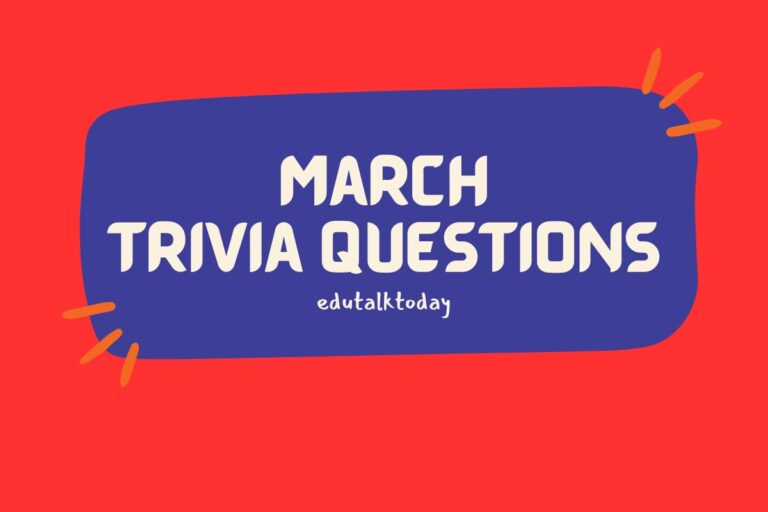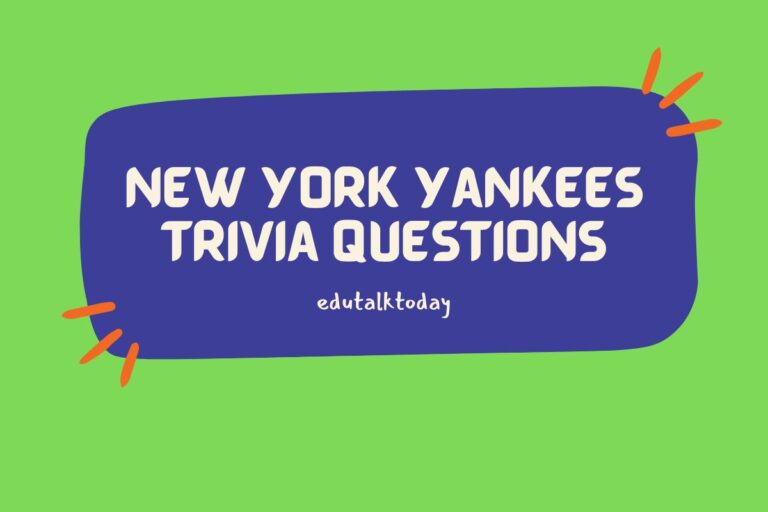35 Black History Trivia Questions

Black History Month is a time to honor and celebrate the achievements, contributions, and rich cultural heritage of African Americans throughout history.
What better way to learn and commemorate this important month than with some engaging trivia questions?
Whether you’re testing your own knowledge or hosting a trivia night with friends and family, these Black History trivia questions will help you appreciate the profound impact African Americans have had on our world.
Let’s get started!
Black History Trivia Questions
- Who was the first African American to hold a medical degree and from which institution did they graduate?
- Name the African American scientist who developed hundreds of products using peanuts, sweet potatoes, and soybeans, and what was one of his most famous inventions?
- What was the name of the all-Black regiment that fought bravely in the American Civil War, and which battle are they most noted for?
- Who was the first African American woman to win the Nobel Prize for Literature, and in which year?
- Can you name the Supreme Court case that declared state laws establishing separate public schools for black and white students to be unconstitutional?
- Who was the first African American to serve as the U.S. Secretary of State, and under which president did they serve?
- Name the African American mathematician whose calculations of orbital mechanics were critical to the success of the first and subsequent U.S. crewed spaceflights.
- What was the name of the landmark bus boycott that marked a pivotal moment in the Civil Rights Movement, and who was the prominent figure associated with it?
- Who was the first African American to win an Academy Award for Best Actor, and for which film?
- Can you name the African American abolitionist who was a former slave and became a prominent activist, author, and speaker in the nineteenth century?
- What landmark legislation is considered to have dismantled the legal framework for racial segregation in the United States, and in what year was it passed?
- Name the African American astronaut who became the first African American in space, and in which year did this historic event occur?
- Who was the first African American to win the Pulitzer Prize, what category did they win it for, and in which year?
- Which African American woman refused to give up her seat on a segregated bus in Montgomery, Alabama, prior to Rosa Parks, sparking a court case that challenged bus segregation laws?
- Who was the founding leader of the Black Panther Party, and in what year was the organization founded?
- Can you name the African American inventor who patented the three-light traffic signal and in what year?
- What was the name of the first African American-owned and operated newspaper in the United States, and in which year was it founded?
- Who was the first African American female billionaire, and how did she amass her fortune?
- Can you name the African American lawyer who was the first to argue a case before the Supreme Court, what was the case, and in which year did it occur?
- Which African American artist is known for his series of paintings known as “The Migration Series,” and what is the theme of this series?
- Who was the first African American woman to publish a book of poetry, and what was the title of the book?
- What was the name of the legal defense fund founded by Thurgood Marshall in 1940, which played a key role in the fight against racial segregation?
- Name the African American woman who became the first female principal of a high school in the United States, and identify the school.
- Who was the African American inventor credited with refining the process of dry cleaning in the 19th century?
- In what year did Shirley Chisholm become the first African American woman elected to the United States Congress, and which state did she represent?
- Can you name the first African American to win a Nobel Peace Prize, and in what year was it awarded?
- What historic event did Jesse Owens famously disrupt with his athletic achievements in 1936, and in which city did it occur?
- Who was the African American composer and pianist known as the “King of Ragtime,” and what is one of his most famous compositions?
- In which year was the National Association for the Advancement of Colored People (NAACP) founded, and what was its primary mission?
- Who was the first African American to have a major opera performed by a major national company, and what was the opera?
- Name the African American cyclist who became the world champion in 1899 and held the title for several years.
- What was the first film directed by an African American to be nominated for the Academy Award for Best Picture, who directed it, and in what year?
- Who became the first African American President of the American Psychological Association, and in which year did this occur?
- Name the African American naval officer who was the first to command a Navy ship, and in which year did this historic event take place?
- Who was the pioneering African American woman in the field of astronomy and astrophysics, known for her work on the chemical composition of stars?
Answers
- Dr. James McCune Smith graduated from the University of Glasgow in 1837.
- George Washington Carver, one of his most famous inventions was a method for producing paints and stains from soybeans.
- The 54th Massachusetts Infantry Regiment, most noted for their assault on Fort Wagner in 1863.
- Toni Morrison, who won the Nobel Prize for Literature in 1993.
- Brown v. Board of Education, 1954.
- Colin Powell served under President George W. Bush starting in 2001.
- Katherine Johnson, whose work was essential for the success of Project Mercury and the Apollo 11 mission to the moon.
- The Montgomery Bus Boycott, with Rosa Parks as the prominent figure associated with it.
- Sidney Poitier won the Academy Award for Best Actor for “Lilies of the Field” in 1963.
- Frederick Douglass, who escaped slavery and went on to become a leading voice for abolition.
- The Civil Rights Act of 1964 is considered the landmark legislation that dismantled the legal framework for racial segregation.
- Guion S. Bluford Jr. became the first African American in space in 1983.
- Gwendolyn Brooks won the Pulitzer Prize for Poetry in 1950, making her the first African American to receive the award.
- Claudette Colvin refused to give up her seat on a segregated bus nine months before Rosa Parks, in March 1955.
- Huey P. Newton was the founding leader of the Black Panther Party, founded in 1966.
- Garrett Morgan patented the three-light traffic signal in 1923.
- “Freedom’s Journal” was the first African American-owned and operated newspaper in the United States, founded in 1827.
- Oprah Winfrey became the first African American female billionaire, amassing her fortune through her successful career in television, media, and entertainment.
- Macon Bolling Allen is known as the first African American lawyer to argue a case before the Supreme Court, which was Roberts v.
Boston in 1850, challenging school segregation in Boston. - Jacob Lawrence is known for his “The Migration Series,” depicting the migration of African Americans from the rural South to the urban North in the early 20th century.
- Phillis Wheatley published “Poems on Various Subjects, Religious and Moral” in 1773.
- The NAACP Legal Defense and Educational Fund (LDF) was founded by Thurgood Marshall.
- Fanny Jackson Coppin became the first African American female principal at the Institute for Colored Youth, later known as Cheyney University, in 1869.
- Thomas L. Jennings is credited with refining the process of dry cleaning in 1821.
- Shirley Chisholm was elected to the United States Congress in 1968, representing New York.
- Ralph Bunche was awarded the Nobel Peace Prize in 1950.
- Jesse Owens famously disrupted the Berlin Olympics in 1936.
- Scott Joplin, known as the “King of Ragtime,” composed “The Maple Leaf Rag” among others.
- The NAACP was founded in 1909, primarily to ensure the political, educational, social, and economic equality of rights of all persons and to eliminate race-based discrimination.
- William Grant Still saw his opera “Troubled Island” performed by the New York City Opera in 1949.
- Major Taylor became the world cycling champion in 1899.
- “A Soldier’s Story” directed by Norman Jewison in 1984 was the first film directed by an African American (Howard E. Rollins Jr. starred, but the directorial credit was a common misconception) to be nominated for Best Picture.
- Robert Lee Williams II became the first African American President of the American Psychological Association in 1970.
- Samuel L. Gravely, Jr. became the first African American to command a Navy ship, the USS Falgout, in 1961.
- Dr. Beth Brown was known for her extensive work in astrophysics, focusing on the emission of X-rays from galaxies, though the distinction of pioneering in astronomy could also apply to other notable figures depending on specific achievements and contributions.






